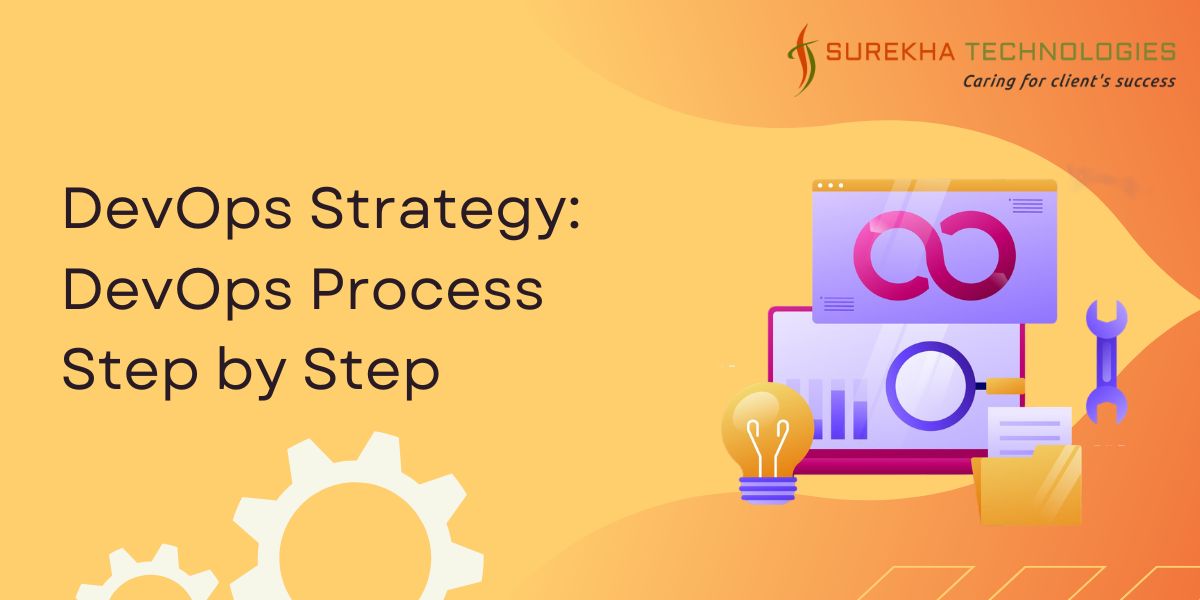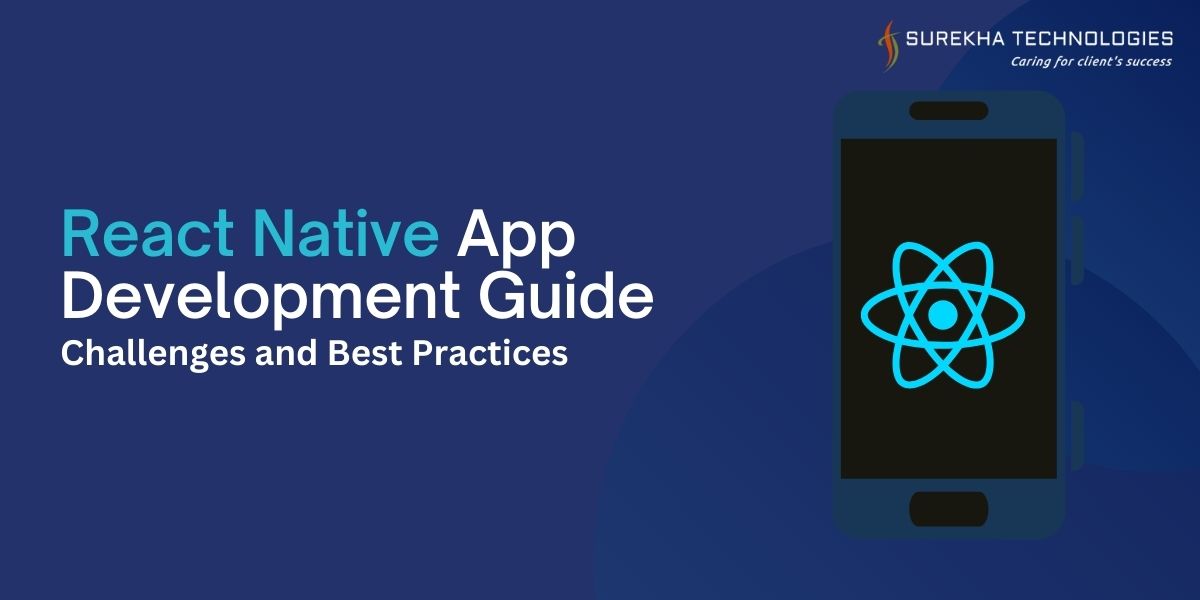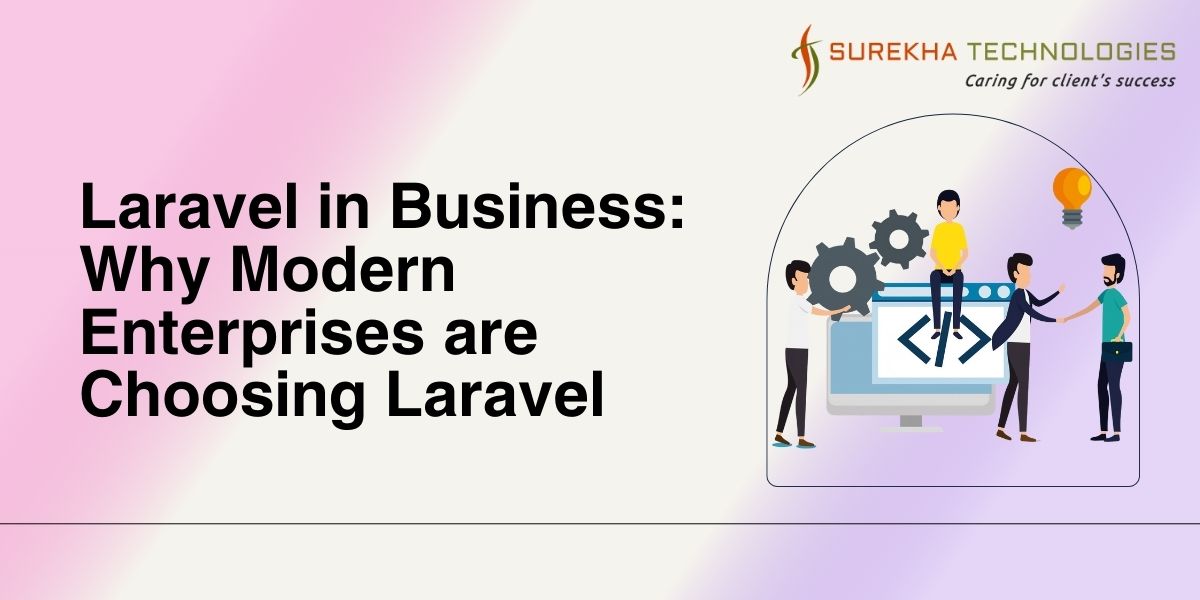DevOps Strategy: DevOps Process Step by Step

In the fast-paced world of software development, businesses are constantly looking for ways to improve efficiency, enhance collaboration, and deliver high-quality products faster. One of the most effective approaches to achieving these goals is through the implementation of a robust DevOps strategy. DevOps, a blend of "development" and "operations," is a set of practices and cultural philosophies that aim to bridge the gap between software development and IT operations. By fostering a culture of collaboration and continuous improvement, DevOps can significantly boost productivity within an organization. Here’s a step-by-step guide to implementing a successful DevOps strategy.
Understanding DevOps
DevOps is more than just a set of tools or practices; it's a cultural shift that emphasizes collaboration, communication, and integration between development and operations teams. The primary goal of DevOps is to shorten the software development lifecycle while delivering features, fixes, and updates frequently in close alignment with business objectives1.
Key Principles of DevOps
Collaboration and Communication: DevOps breaks down the silos between development and operations teams, fostering a culture of shared responsibility and collaboration.
Automation: Automating repetitive tasks such as testing, integration, and deployment is crucial for speeding up processes and reducing human error.
Continuous Integration and Continuous Deployment (CI/CD): These practices involve integrating code changes frequently and deploying them automatically to production environments.
Monitoring and Logging: Continuous monitoring and logging help teams detect issues early and respond quickly, ensuring system reliability and performance.
Infrastructure as Code (IaC): Managing infrastructure through code allows for more consistent and repeatable deployments.
Step-by-Step DevOps Process
1. Assess Your Current State
Before diving into DevOps, it's essential to understand your current processes, tools, and culture. Conduct a thorough assessment to identify areas for improvement and potential challenges. This step involves evaluating your existing workflows, identifying bottlenecks, and understanding the current level of collaboration between development and operations teams2.
2. Develop a DevOps Culture and Mindset
DevOps is as much about culture as it is about tools and processes. Encourage a culture of collaboration, continuous learning, and shared responsibility. Promote open communication and break down silos between teams. This cultural shift is crucial for the successful implementation of DevOps practices.
3. Define Your DevOps Process
Clearly define the processes and workflows that will be used in your DevOps strategy. This includes outlining the steps for continuous integration, continuous deployment, and continuous monitoring. Having a well-defined process ensures that everyone is on the same page and understands their roles and responsibilities.
4. Select Your DevOps Toolchain
Choosing the right tools is critical for the success of your DevOps strategy. Select tools that support automation, collaboration, and integration. Popular DevOps tools include Jenkins for CI/CD, Docker for containerization, Kubernetes for orchestration, and Terraform for infrastructure as code. Ensure that the tools you choose integrate well with each other and support your defined processes.
5. Implement Continuous Integration (CI)
Continuous Integration involves regularly merging code changes into a central repository and automatically testing them. This practice helps detect issues early and ensures that the codebase remains stable. Set up a CI pipeline using tools like Jenkins or GitLab CI to automate the process of building and testing code changes.
6. Implement Continuous Deployment (CD)
Continuous Deployment takes CI a step further by automatically deploying code changes to production environments. This practice ensures that new features and fixes are delivered to users quickly and reliably. Use tools like Jenkins, Spinnaker, or GitLab CI to set up a CD pipeline that automates the deployment process.
7. Adopt Infrastructure as Code (IaC)
Managing infrastructure through code allows for more consistent and repeatable deployments. Use tools like Terraform, Ansible, or Chef to define and manage your infrastructure as code. This practice ensures that your infrastructure is versioned, tested, and deployed consistently.
8. Automate Testing
Automated testing is a critical component of a successful DevOps strategy. Implement automated tests at various stages of the CI/CD pipeline to ensure that code changes do not introduce new bugs. Use tools like Selenium, JUnit, or TestNG to automate unit tests, integration tests, and end-to-end tests.
9. Monitor and Measure
Continuous monitoring and logging are essential for maintaining system reliability and performance. Implement monitoring tools to track key metrics and detect issues early. Use tools like Prometheus, Grafana, or ELK Stack to monitor application performance, infrastructure health, and user experience. Use this data to continuously improve your processes.
10. Create a Cross-Functional Product Team
A successful DevOps strategy requires a cross-functional team that includes members from development, operations, QA, and other relevant departments. This team should work together throughout the entire software development lifecycle, from planning to deployment and beyond. Having a cross-functional team ensures that all perspectives are considered and that the team can respond quickly to any issues that arise.
Hiring Dedicated DevOps Developers
To successfully implement DevOps, you need skilled professionals who understand both development and operations. Hiring dedicated DevOps developers can bridge the gap between these two areas and drive your DevOps initiatives forward. A DevOps development company can provide the expertise and resources needed to implement and manage your DevOps processes effectively.
Conclusion
A well-implemented DevOps strategy can transform the way your organization develops and delivers software. By fostering a culture of collaboration, automating processes, and implementing best practices like CI/CD and IaC, you can achieve faster delivery, improved quality, and greater efficiency. Whether you choose to build an in-house DevOps team or partner with a DevOps development company, the key is to embrace the cultural shift and commit to continuous improvement. With the right strategy and mindset, DevOps can help your organization stay competitive in today's fast-paced digital world.
Note: IndiBlogHub features both user-submitted and editorial content. We do not verify third-party contributions. Read our Disclaimer and Privacy Policyfor details.







